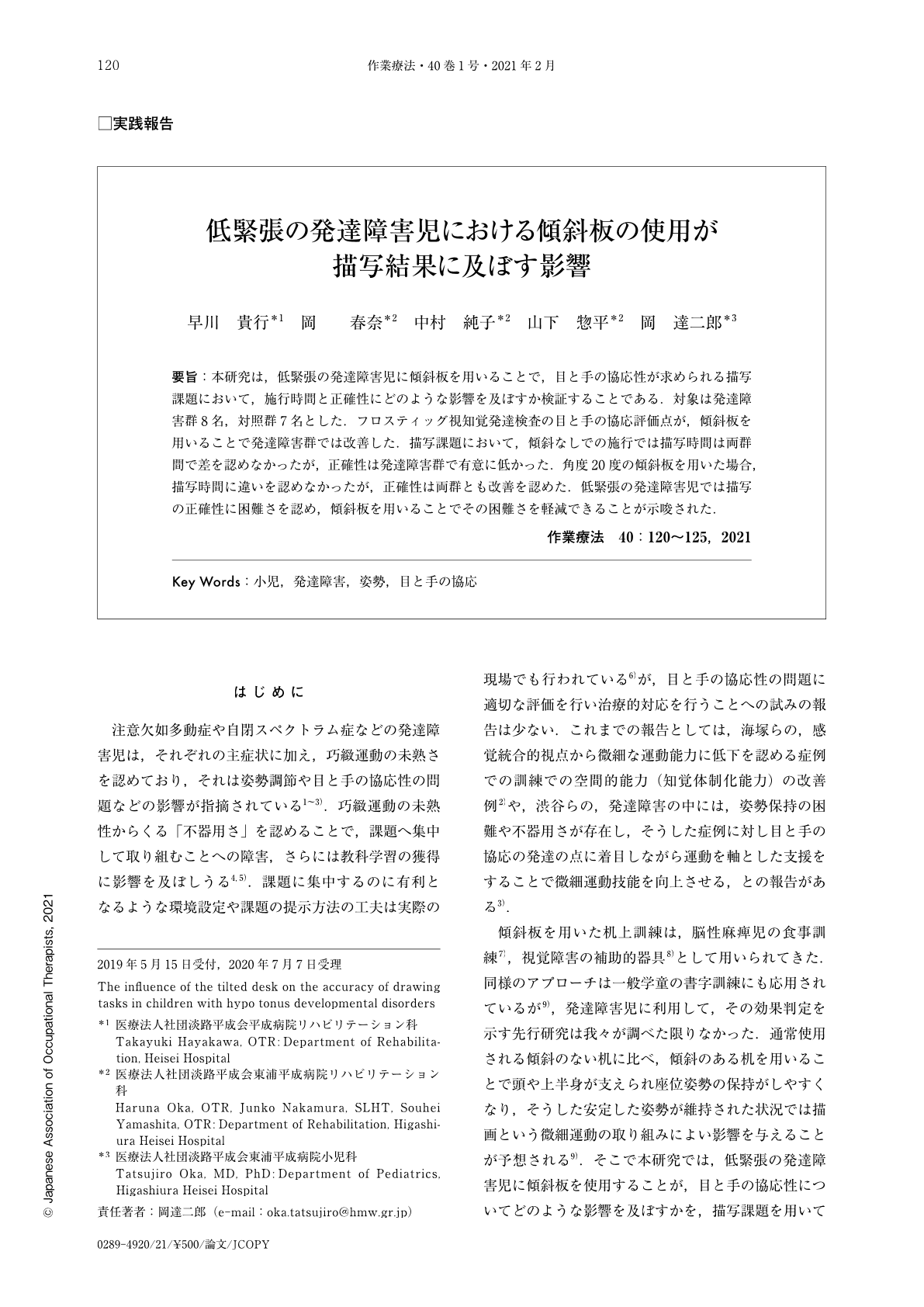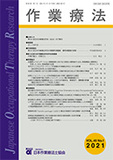Japanese
English
- 販売していません
- Abstract 文献概要
- 1ページ目 Look Inside
- 参考文献 Reference
要旨:本研究は,低緊張の発達障害児に傾斜板を用いることで,目と手の協応性が求められる描写課題において,施行時間と正確性にどのような影響を及ぼすか検証することである.対象は発達障害群8名,対照群7名とした.フロスティッグ視知覚発達検査の目と手の協応評価点が,傾斜板を用いることで発達障害群では改善した.描写課題において,傾斜なしでの施行では描写時間は両群間で差を認めなかったが,正確性は発達障害群で有意に低かった.角度20度の傾斜板を用いた場合,描写時間に違いを認めなかったが,正確性は両群とも改善を認めた.低緊張の発達障害児では描写の正確性に困難さを認め,傾斜板を用いることでその困難さを軽減できることが示唆された.
This study attempted to verify how using the tilted desk influenced the elapse of time and accuracy in depiction tasks requiring eye-hand coordination in a child with a hypo tonus developmental disorder. The evaluation score of eye-hand coordination in the Frostig visual development test using the tilted desk was improved in the developmental disorder group. In the group without inclination, there was no difference in depiction time between the two groups. Accuracy was significantly lower in the developmental disorder group. When using the tilted desk at a 20-degree angle, no significant difference was found in the depiction time, and there was an improvement in accuracy in both groups. As a result, the difficulty in the accuracy of the description may be reduced by the use of the tilted desk in children with hypo tonus developmental disorders.

Copyright © 2021, Japanese Association of Occupational Therapists. All rights reserved.


